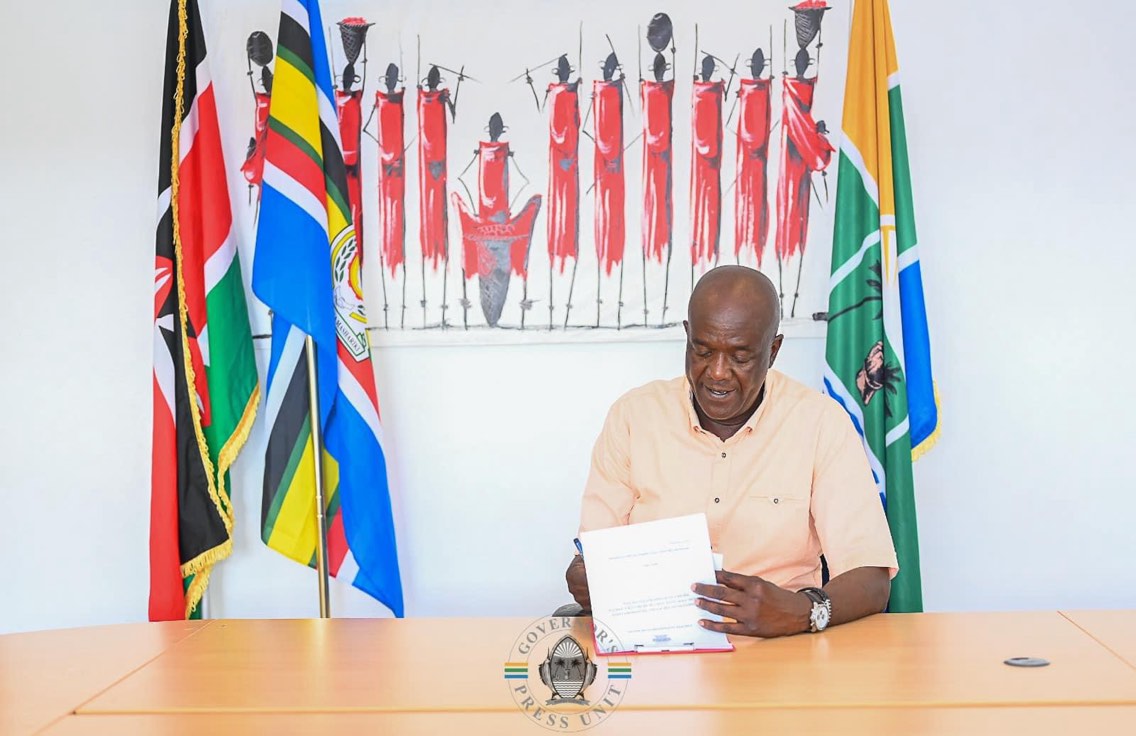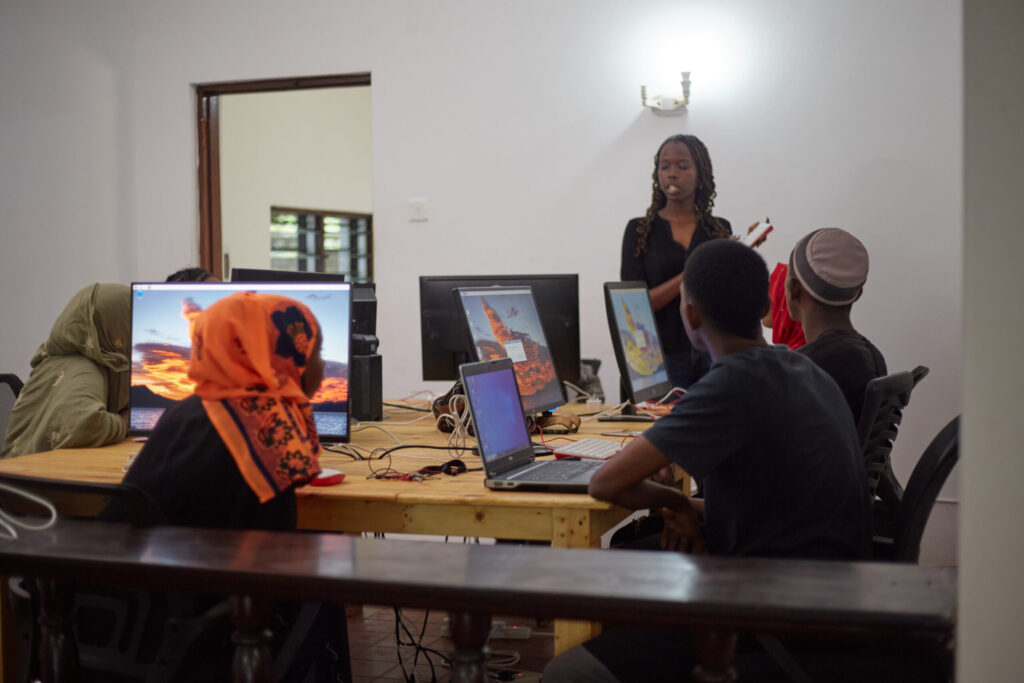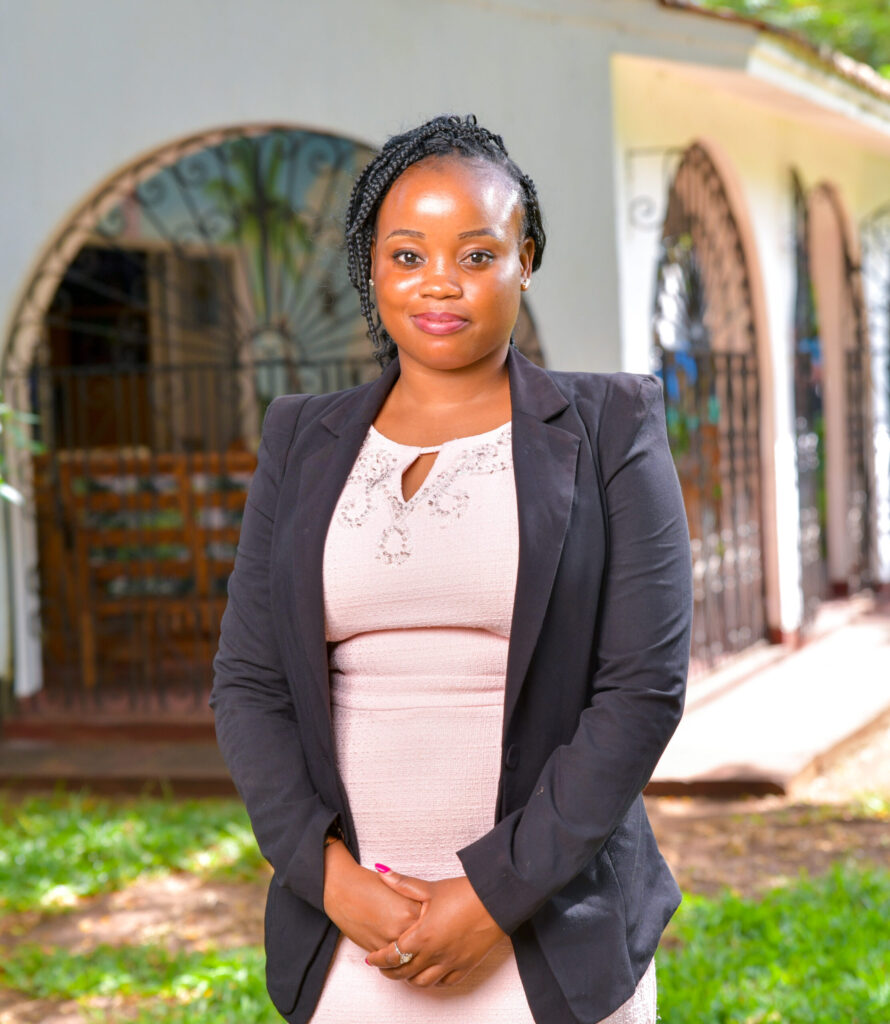Two days ago, H.E. Gideon Mung’aro, the Governor of Kilifi County, banned Muguka in the County – the entry, transportation, distribution, sale, and use of the drug within the County. This followed a similar move by the Governor of Mombasa County, H.E. Abdullswamad Sherrif Nassir, who enacted a muguka ban in his county just a week prior.
The Story Behind the Ban
In March 2024, Zeinab Zahor, in collaboration with Thellesi Trust, produced a documentary film titled Story Za Jaba. It was the first ever docu-film to be made about the effects of muguka on coastal women. Zeinab is a dedicated community change-maker who tells the stories of women in her community, with the goal of highlighting issues, creating new narratives and inspiring positive social change. Thellesi Trust, known for its expertise in marketing and communications for social change, supported her in creating and disseminating this impactful story.
When it was released, it immediately went viral on social media platforms, including Facebook, WhatsApp Groups, X (formerly Twitter), and YouTube. It shocked many people who were unaware of the severity of addiction to muguka. Moreover, it brought to the attention of the viewers how the cheap, easy-to-find, harmless looking green leaf destroys a person and society as a whole.
Among the people who the video touched profoundly was The Council of Muslim Teachers and Preachers Association (CMTPA) from Malindi and Magarini Sub-County. Upon viewing the documentary, they admitted that it brought out the seriousness of the drug in a way they had not seen before. “I know about muguka and what it is doing to our youths, but never had I imagined I would watch what I have just watched and hear what I have just heard,” said one of the Ushtadhs. Expressing great concern, they pledged to exert pressure on the government to address the issue,including by speaking about it in their spaces.
When the Governor H.E Gideon Mung’aro visited Maono Space, we presented the docufilm to him and he acknowledged the widespread demand from Kilifi County citizens for action against it. In every public meeting that he went to, people asked about him to prohibit the drug. Additionally, he expressed his concern about how easily accessible it is even to children, who are skipping class to engage in dangerous activities to afford the drug. “With Kshs 20, a child can be able to buy this muguka,” he said, adding that “muguka and children cannot exist in the same place, one has to go.” Right there, in front of more than 100 youths, the Governor made a promise to ban the drug by all means. You can watch it here.
Local Changemakers and Active Citizenship
The ban of muguka in Kilifi County is a testament to the role that local changemakers play in fostering active citizenship. By Zeinab sharing her community’s struggles, she empowered residents to collectively demand action. Families, once isolated in their battles against addiction, realized they were part of a larger community facing similar challenges. This solidarity galvanized them to pressure the government for a ban on the drug, demonstrating the profound impact of unified, active citizenship.
Local changemakers are the heartbeat of their communities. They understand the intricate dynamics and unique challenges their communities face. When residents see someone like Zeinab, who is from their community and shares their lived experiences, leading the charge, it inspires a collective movement towards positive change. This is the essence of active citizenship – individuals coming together and using their collective voice to advocate for the collective well-being.
Shifting Power to Local Changemakers
At Maono, we are on a mission to empower local changemakers, recognizing that real, lasting change often originates from within the community. Shifting power from the top to changemakers at the grassroots is crucial. These local leaders, deeply embedded in their communities, possess a nuanced understanding of local challenges and can drive more effective and sustainable solutions.
Zeinab’s ability to produce such a compelling documentary stems from her deep connection to the community. Her personal experiences and trusted relationships allowed her to capture authentic stories with minimal resources. This underscores the importance of empowering local voices to lead change rather than relying on external interventions.
Shifting power is not just about transferring authority; it’s about recognizing and valuing local knowledge and expertise. It’s about creating an environment where local initiatives are supported and scaled, where the solutions to problems come from those who are most affected by them. This approach fosters a sense of ownership and responsibility, ensuring that change is not only achieved but also sustained.
Collaboration for Sustainable Development
As we strive to achieve the Sustainable Development Goals, especially in the wake of setbacks from COVID-19 and ongoing conflicts, it is imperative to adopt new strategies. At Maono, we believe that empowering grassroots change-makers and community-based organizations is a key tactic. These local actors are the bedrock of real, tangible progress, driving initiatives that resonate deeply within their communities.
Collaboration is key to sustainable development. It involves not only partnerships between governments and local communities but also the integration of various sectors and stakeholders. By fostering a collaborative approach, we can leverage diverse perspectives and resources, ensuring that development initiatives are holistic and inclusive.
The Role of Storytelling in Driving Change
The power of storytelling cannot be overstated. Stories have the ability to connect people, evoke empathy, and inspire action. “Story Za Jaba” is a prime example of how storytelling can be used as a tool for social change. By bringing the issue of muguka addiction to light, the documentary sparked a community-wide dialogue and mobilized collective action.
Storytelling allows individuals and communities to share their experiences and perspectives, making invisible struggles visible. It humanizes issues, moving them beyond statistics and policy debates to real human experiences. This emotional connection is what drives people to act, to advocate for change, and to support one another.
The journey from the release of Story Za Jaba to the ban on muguka in Kilifi County is a powerful narrative of how local voices can influence policy and drive social change. It underscores the importance of localizing efforts, empowering grassroots leaders, and fostering active citizenship.
Through collaboration and a commitment to shifting power to those on the ground, we can address pressing community issues and work towards a more equitable and sustainable future.




